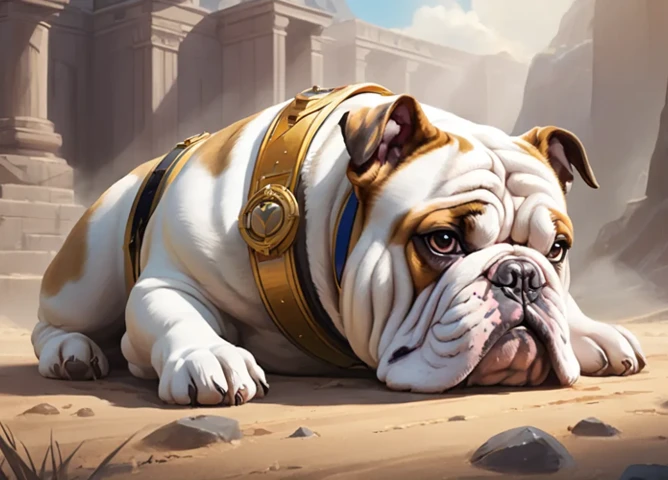Dream of Hairy Legs Meaning: Unraveling the Symbolism Behind This Common Dream Experience
Have you ever woken up from a dream filled with perplexity, only to find yourself fixating on one particular detail – like a dream of having hairy legs? While dreams can be puzzling and often difficult to understand, they are not merely random images that our minds conjure during sleep. Dreams have long been regarded as a window into our subconscious, offering insights into our deepest thoughts, desires, and fears. In this article, we will delve into the symbolism behind dreams of hairy legs, exploring interpretations from psychological, physical, social, and personal perspectives. By unraveling the meaning of this common dream experience, we hope to shed light on the mysteries of the subconscious and provide you with tools to interpret your own dreams.
Contents
- The Symbolism of Dreams
- Dreams of Hairy Legs Explained
- Interpreting Your Own Dream
- Common Variations of Hairy Leg Dreams
- Conclusion
-
Frequently Asked Questions
- 1. Can dreams predict the future?
- 2. Why do dreams sometimes feel so real?
- 3. What is lucid dreaming?
- 4. Do all dreams have significant meanings?
- 5. Why do some dreams repeat themselves?
- 6. Can dreams be influenced by external factors?
- 7. Do animals dream too?
- 8. Can dreams help with problem-solving?
- 9. Why do dreams sometimes feel confusing or nonsensical?
- 10. Can dreams have a therapeutic effect?
- References
The Symbolism of Dreams
Dreams have intrigued and fascinated mankind for centuries. They are often seen as a mysterious realm where the unconscious mind communicates with the conscious self. Dreams have a symbolic language of their own, using images, emotions, and scenarios to convey messages and insights. These symbols can be highly personal, influenced by our experiences, beliefs, and cultural backgrounds. Some common symbols in dreams include animals, objects, places, and people. Each symbol holds meaning and significance that can be interpreted in various ways. As we explore the symbolism behind dreams, we begin to uncover the hidden messages and deeper meanings that lie within our sleeping minds.
Dreams of Hairy Legs Explained
Dreams of hairy legs are a unique and intriguing phenomenon that can hold deep symbolic meaning. These dreams can be interpreted from various perspectives, shedding light on different aspects of our lives. From a psychological interpretation, dreams of hairy legs may represent feelings of power and virility, as hair has long been associated with strength and masculinity. On a physical level, these dreams may reflect a connection to our primal instincts and the natural growth of hair on our bodies. Socially and culturally, the presence of hairy legs in dreams may be influenced by societal beauty standards or personal experiences related to body image. Alternatively, dreams of hairy legs can be deeply personal, with symbolic associations specific to an individual’s unique life experiences. By exploring these different interpretations and considering the context of the dream, we can begin to unravel the symbolism behind hairy leg dreams and gain valuable insights into our subconscious mind.
1. Psychological Interpretation
Dreams of hairy legs can hold significant psychological interpretations. One possible interpretation is that the hairy legs symbolize a sense of power and assertiveness. The hairiness may represent a desire to be more dominant or in control in waking life. Alternatively, it could suggest a feeling of vulnerability or insecurity, as hairy legs are often associated with masculinity. Another psychological interpretation could be related to repressed desires or sexuality. The hairy legs may represent hidden sexual desires or a longing for physical intimacy. Understanding the psychological aspects of your dream can provide valuable insights into your subconscious mind and inner thoughts. Exploring these interpretations can help you gain a better understanding of yourself and your emotions.
2. Physical Symbolism
Physical symbolism in dreams can offer valuable insights into our physical well-being and bodily experiences. When it comes to dreams of hairy legs, there may be several interpretations related to the physical realm. One possibility is that hairy legs symbolize a sense of protection or boundary-setting. Just as hair acts as a physical barrier, it could represent a need to protect oneself or establish personal boundaries in waking life. On the other hand, hairy legs might be a manifestation of body image concerns or insecurities. In our society, hairiness is often associated with masculinity, and dreaming of hairy legs could reflect a subconscious exploration of gender identity or societal expectations. Another interpretation could link hairy legs with sensuality and eroticism, as hair has long been associated with physical attraction and arousal. Ultimately, the physical symbolism behind dreams of hairy legs can vary from individual to individual, depending on personal experiences, perspectives, and cultural contexts.
Dreams, including those of hairy legs, can also carry social and cultural significance. In some cultures, hair is associated with power, masculinity, or femininity, depending on the context. For instance, in ancient Greece, body hair was seen as a sign of virility and masculinity. In contrast, in certain societies, women’s body hair is often stigmatized and viewed as undesirable. These cultural attitudes towards hair can influence the meaning of dreams featuring hairy legs, reflecting societal norms and expectations. Additionally, social factors such as media representation and personal experiences may shape how one perceives and interprets dreams of hairy legs. It is important to consider these cultural and social influences when analyzing the symbolism of such dreams, as they can provide valuable insights into how our society views body image and gender norms.
4. Personal Associations
Personal associations play a significant role in interpreting dreams, including dreams of hairy legs. These associations are unique to each individual and can stem from personal experiences, memories, and emotions. For example, someone who had a negative experience related to body hair may associate hairy legs in their dream with feelings of insecurity or shame. On the other hand, someone who embraces body positivity may see hairy legs in their dream as a symbol of self-acceptance and liberation. It’s important to consider our personal history and feelings when analyzing the symbolism of our dreams, as these associations can provide valuable insights into our subconscious thoughts and emotions. By reflecting on our personal associations, we can gain a deeper understanding of the message that our dreams are trying to convey.
Interpreting Your Own Dream
When it comes to understanding the meaning of your own dream, there are several steps you can take to gain insight and interpretation. Firstly, reflecting on the emotions you experienced during the dream can provide valuable clues about its underlying message. Emotions serve as a guide, indicating what aspects of your life might be affecting your subconscious mind. Secondly, identifying any relevant life events or experiences that correlate with the symbols in your dream can offer deeper understanding. These connections may reveal patterns and themes that are significant in your waking life. Thirdly, considering the context of your dream can help decipher its meaning. The setting, characters, and actions within the dream may provide subtle hints about the message it holds. Lastly, consulting a dream dictionary or exploring the symbolism of the specific symbols in your dream can offer additional insights. By combining these approaches, you can gain a deeper understanding of your dreams and unlock the valuable messages they hold.
1. Reflect on the Emotions
When interpreting your own dream of hairy legs, one important step is to reflect on the emotions you felt during the dream. Emotions can reveal underlying psychological cues and give insight into the meaning behind the symbolism. Did you feel fear, anxiety, or disgust? Or perhaps you felt curiosity, amusement, or acceptance? Your emotional response can provide valuable clues about your subconscious thoughts and feelings. Pay attention to the intensity and duration of the emotions as well, as they can offer further context for interpretation. By delving into the emotions connected to your dream, you can begin to unravel the deeper layers of its meaning.
2. Identify Any Relevant Life Events or Experiences
When trying to interpret a dream, it can be helpful to reflect on any relevant life events or experiences that may have influenced its content. Our dreams often draw upon our personal memories and experiences, using them as a framework for symbolic representation. Consider recent events, relationships, or situations that may have been on your mind before the dream. Did you recently start a new job? Have you been experiencing difficulties in a relationship? These real-life experiences can serve as a guide to understanding the hidden meaning behind the dream. By making connections between your dream and your waking life, you may uncover valuable insights and gain a deeper understanding of yourself.
3. Consider the Context of Your Dream
When interpreting your dream of hairy legs, it is crucial to consider the context in which the dream occurred. The context refers to the specific details and circumstances surrounding the dream. Take note of the location, time period, individuals present, and any significant events or emotions within the dream. For example, if you dreamt of having hairy legs while attending a social gathering, it may indicate a fear of being judged or feeling self-conscious in social settings. On the other hand, if the dream took place in a familiar and comforting environment, it could signify a need for security and stability in your waking life. By analyzing the context, you can gain deeper insight into the underlying themes and messages of your dream.
4. Consult a Dream Dictionary
Consulting a dream dictionary can be a helpful tool in interpreting your dreams. Dream dictionaries provide interpretations and explanations for a wide range of symbols and elements that may appear in your dreams, including hairy legs. These dictionaries offer different perspectives and meanings associated with specific symbols, allowing you to gain insights and understanding into the hidden messages of your dream. While it’s important to remember that dream symbols can be subjective and may vary depending on the individual, a dream dictionary can serve as a starting point for your interpretation journey. By cross-referencing your dream symbols with the insights provided in a dream dictionary, you may gain valuable insights into the underlying meanings of your dream experiences.
Common Variations of Hairy Leg Dreams
Dreams of hairy legs come in various forms and can vary in their symbolic interpretations. Here are some common variations of hairy leg dreams:
1. Hairy Legs Falling Off: In this variation, the dreamer may perceive their hairy legs falling off or detaching from their body. This could symbolize a desire for change or shedding old beliefs or habits.
2. Excessive Hair Growth: Dreams of unusually hairy legs can represent feelings of power, assertiveness, or dominance. It may suggest a need to embrace your own strength and confidence.
3. Shaving Hairy Legs: Dreaming of shaving hairy legs could indicate a desire for a fresh start or the need to remove obstacles or burdens in your life.
4. Others’ Reaction to Hairy Legs: If you dream of others reacting negatively or positively to your hairy legs, it may reflect concerns about how others perceive you or the need for acceptance and self-expression.
Each variation carries unique symbolism and can be subject to personal interpretations. Remember, dreams are highly personal experiences, and the meaning can differ depending on the individual.
Conclusion
In conclusion, dreams play a complex and significant role in our lives. They serve as a gateway to our subconscious, allowing us to explore and understand our deepest thoughts, emotions, and desires. While the symbolism of dreams can vary greatly from person to person, it is important to consider the psychological, physical, social, and personal aspects when interpreting their meaning. Dreams of hairy legs, for example, can symbolize a range of interpretations, from psychological desires for power and dominance to cultural influences of beauty standards. Reflecting on the emotions, identifying relevant life events, considering the dream context, and consulting a dream dictionary can all aid in the interpretation process. By delving into the symbolism of dreams, we can gain valuable insights into ourselves and navigate the mysterious realm of our subconscious minds.
Frequently Asked Questions
1. Can dreams predict the future?
While some people believe that dreams can provide glimpses into the future, there is no scientific evidence to support this claim. Dreams are a reflection of our thoughts, emotions, and experiences, rather than a glimpse into what is to come.
2. Why do dreams sometimes feel so real?
During REM (rapid eye movement) sleep, the brain is highly active, creating vivid and lifelike dream experiences. This heightened brain activity, combined with the suspension of logical thinking during dreams, can make dreams feel incredibly real and immersive.
3. What is lucid dreaming?
Lucid dreaming is when a person becomes aware that they are dreaming while still in the dream state. This awareness allows the dreamer to have some control over the dream, potentially shaping the dream narrative or consciously influencing actions within the dream.
4. Do all dreams have significant meanings?
Not all dreams have deep symbolic meanings. Some dreams may simply be the result of random brain activity or a reflection of daily experiences and thoughts. However, many dreams do carry meaning and can provide insight into our subconscious mind.
5. Why do some dreams repeat themselves?
Recurring dreams often indicate unresolved issues or themes in our lives that we need to address. These dreams may continue to recur until we confront and resolve the underlying emotions or situations that they represent.
6. Can dreams be influenced by external factors?
Yes, dreams can be influenced by external factors such as stress, medication, or even the foods we eat. Emotional states and environmental stimuli can also shape the content and tone of dreams.
7. Do animals dream too?
Research suggests that many animals, including mammals and birds, experience REM sleep, which is associated with dreaming in humans. It is believed that these animals also engage in dream-like experiences during their sleep.
8. Can dreams help with problem-solving?
Some studies suggest that dreams can aid in problem-solving by providing novel insights and alternative perspectives on challenges we face in waking life. Dreams offer a unique opportunity for the brain to process information and form connections that may not be apparent during our conscious state.
9. Why do dreams sometimes feel confusing or nonsensical?
Dreams do not adhere to the rules of logic and rationality. The subconscious mind often weaves together disparate elements, emotions, and memories, which can result in confusing or nonsensical dream experiences. These dreams are not meant to be understood literally but rather symbolically.
10. Can dreams have a therapeutic effect?
Dreams can have a therapeutic effect by allowing individuals to process unresolved emotions, trauma, or subconscious conflicts. Dream analysis and therapy can be valuable tools for exploring and resolving inner conflicts and promoting psychological well-being.







